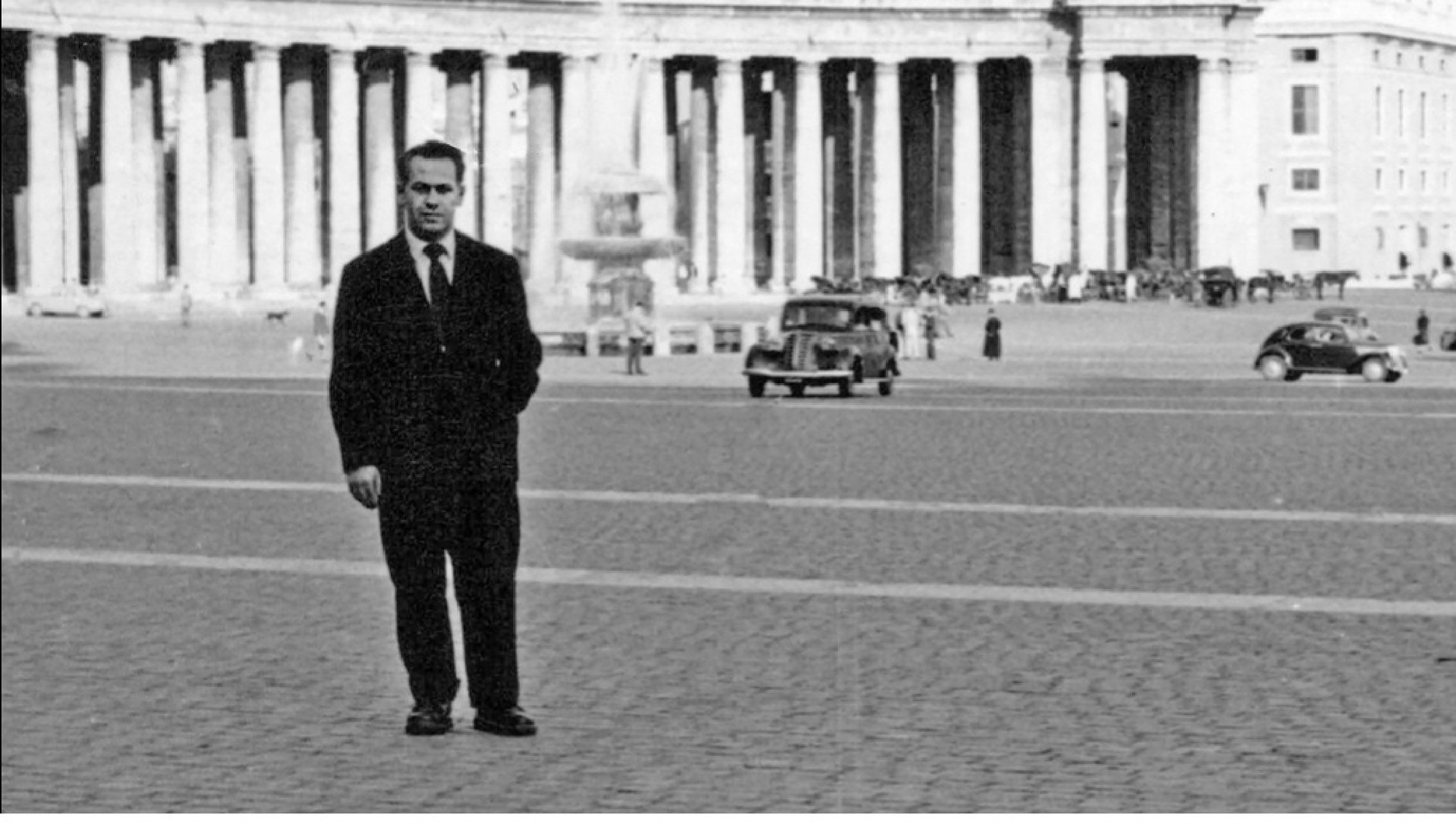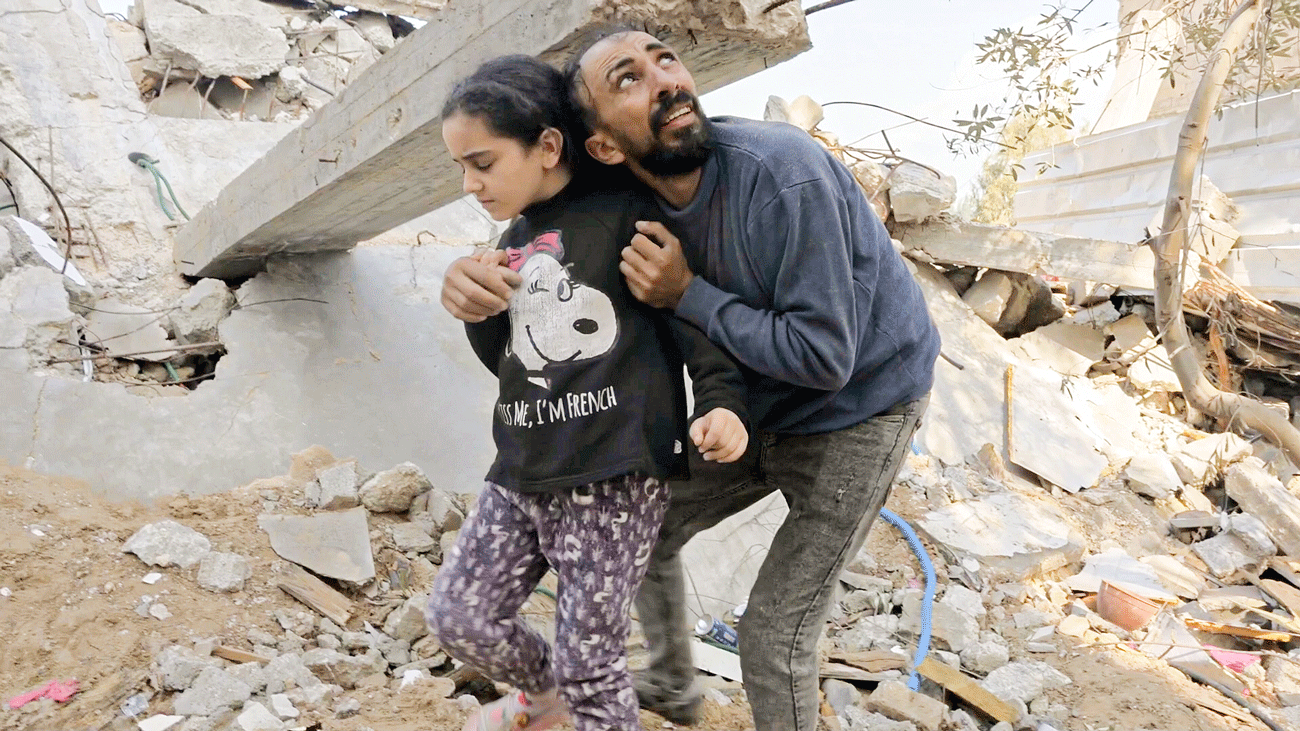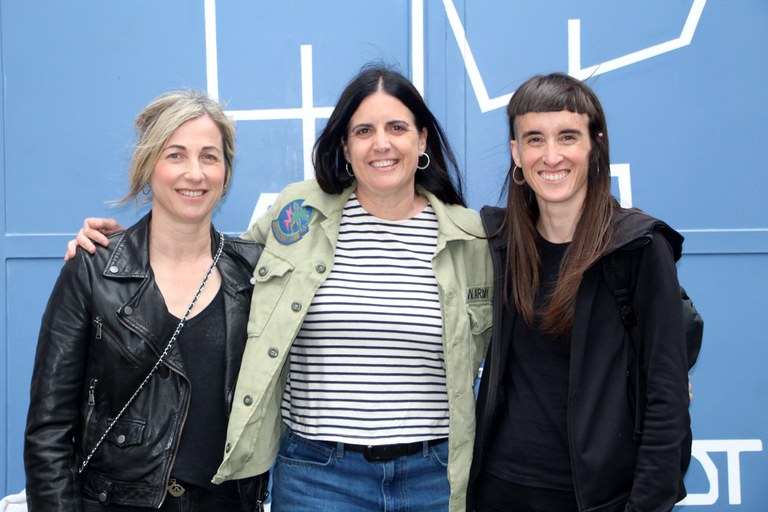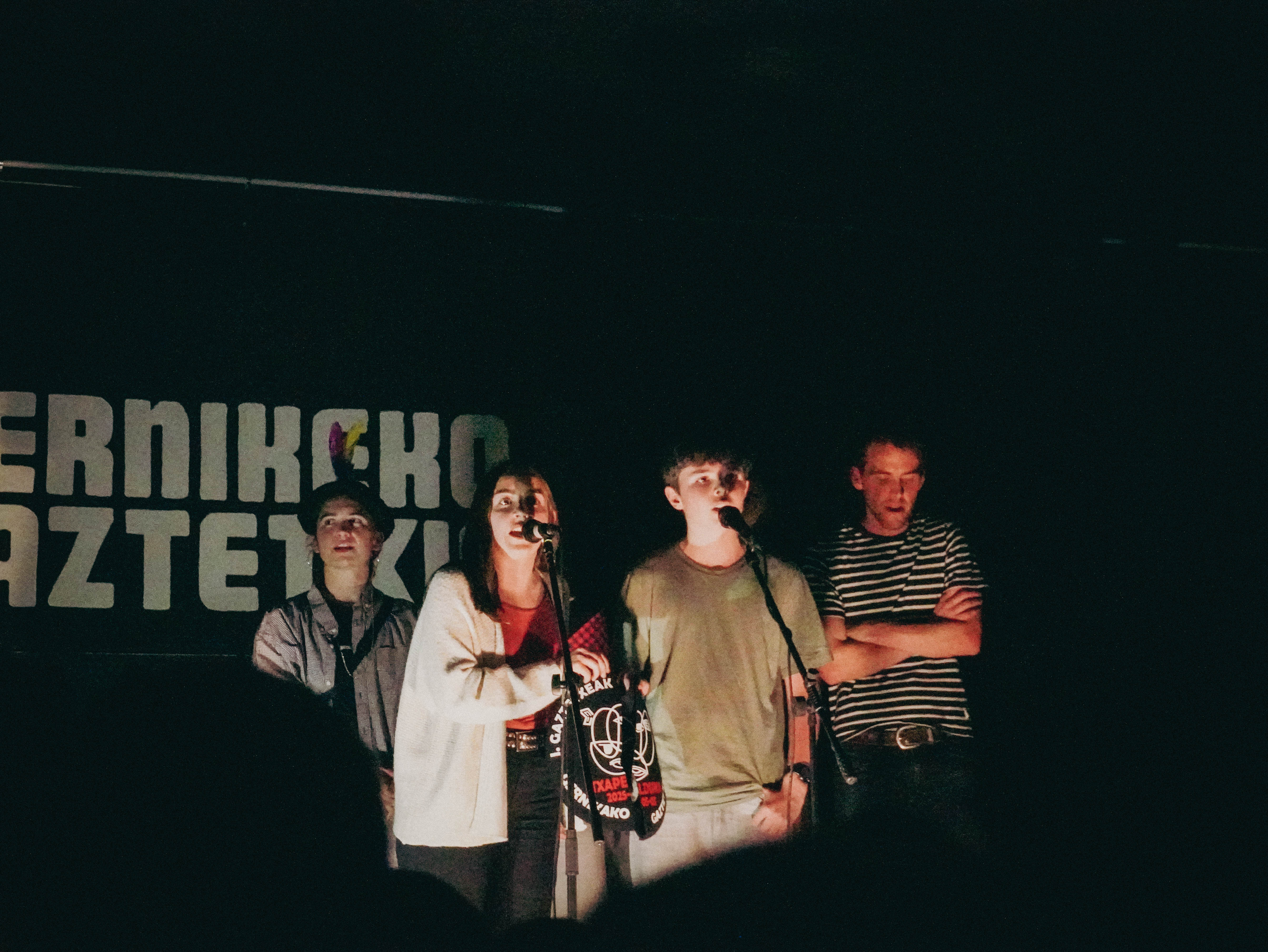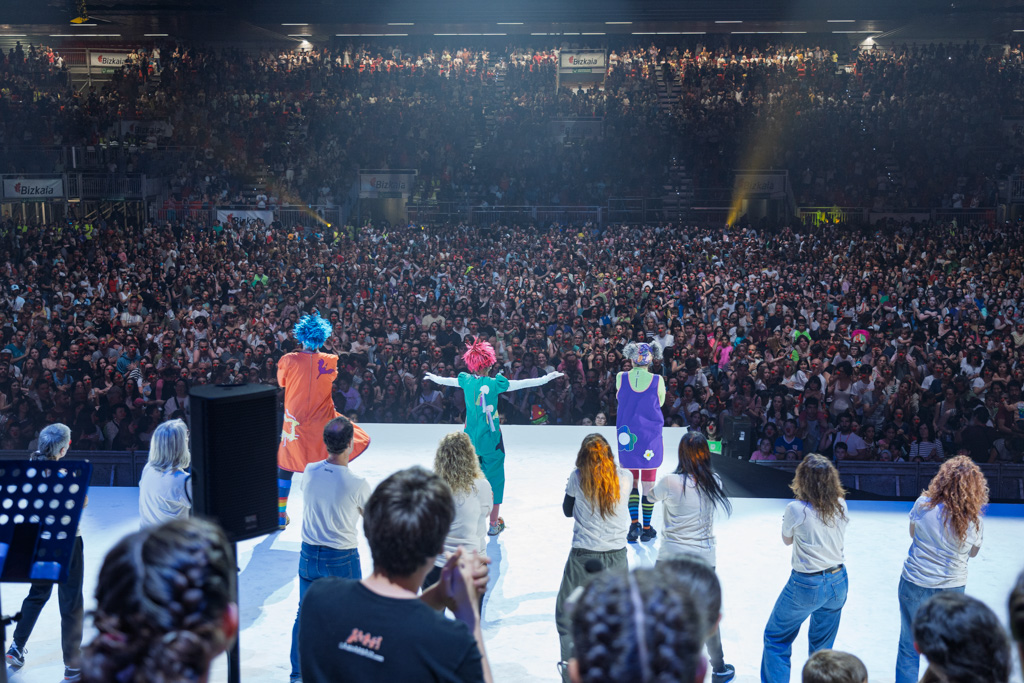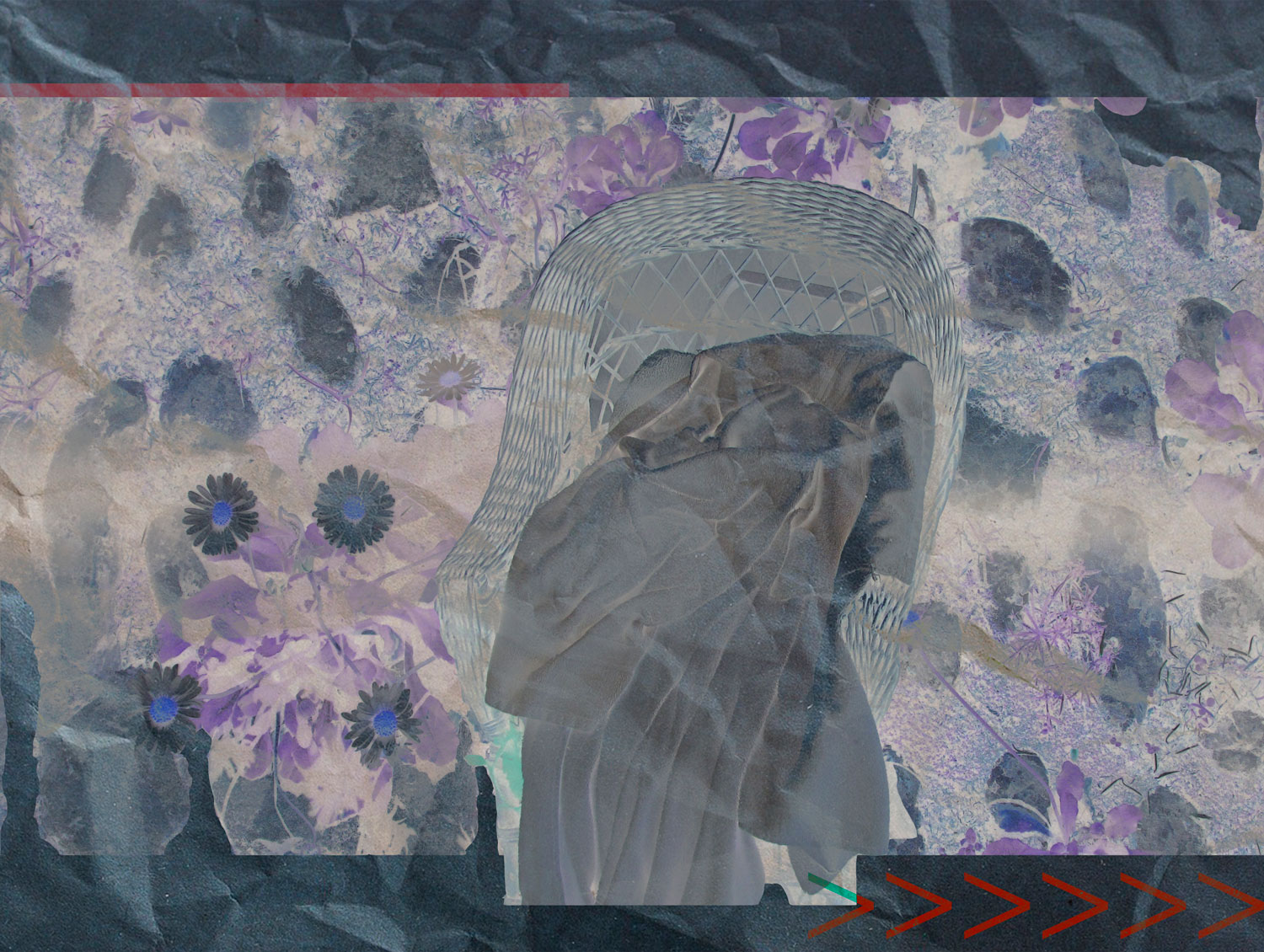Claiming that art is also a hammer
- Gabriel Aresti stated that poetry is a hammer, as Bernardo Atxaga, Paul Beitia and Garazi Navarro joined the table that added art to the combination. In Durango, a few meters from the Fair, members of the Socialist Council invited to reflect on culture, art, politics and interaction between them.

Almost a thousand novelties were presented in Durango, a Thursday in which one could not even move away from the streets and stands that were presented, there were other proposals in Durango, at least for the enjoyment of everyone who had time to go through the branches, navigate the bowels and chain. Because people and especially youth have to approach culture, as if the elderly were a resin of mandates that would make the young man and that, despite showing full rooms, the young man had an interest in the subject, one of the handles was to start the exchanges of opinion and reflection. Facing more than a hundred people, Bernardo Atxaga was the first to draw a line of differentiation between culture and cultural product, arguing with great clarity that culture is something of another dimension, art is culture and culture is language. Without language there is nothing, and it is language, in short, that shapes society. Because, for Atxaga, we came unconsciously to use a language that then talks about us.
Extending the reflection and thanking Atxaga for opening the plaza, Paul Beitia began to agree that these are the discussions most linked to the time. And he addressed the issue, opposing what many believe language determines society, the movement of society and, therefore, politics. “What is behind it is that if we change our language, we will gain power and therefore end up with various oppression. But that's not the case. What moves society must be sought in the dynamics of society, not in language”.
And again, looking at Landako, Beitia continued Atxaga's statements on cultural products. The key is to see culture as a commodity, and the capitalist system is the one behind it. It looks like a culture, a consumer-oriented product. And that is, in the opinion of Garazi Navarro, one of the clearest indicators of capitalist worldview. Speaking of cultural products and sales concepts, Navarro also spoke of bertsolarism, which is precisely the commodification of verses. That is to say, bertsolari is obliged to sing what one wants to hear, but with this direct. If you’re interested, read the Eki Bertsolarism in January 2021.
Generation and free consumption
Because, as in society, the categories of “freedom” and “equality” are included in the culture to the kitchen, Navarro uncovered the ailments that this causes and Atxaga used the concepts to take a look. On his journey to the Cold War, he recalled that the CIA promoted and promoted the practices of modern art, which was the tool for politics, claiming that they lived in freedom in the United States and presuming that they did not exist in the Soviet Union.
Beitia argued that the above ideas still have a clear reflection in the cultural sphere, as creators, like musicians, often claim that “he has managed to do what he wants” in his latest work. Beitia says no, that freedom is not as they say, because it will inevitably be under a discipline, a certain framework, or that it will be nothing, as Antonio Gramsci said. So both Beitia and Navarro made cultural strife understood as a political struggle in their conventions, and stressed that, like art, culture should also assume a social role. Because the recovery or reproduction of the existence of Victor Jara would not make sense, in his opinion, and attitude and behavior is what must be recovered.
BRN + Auzoko eta Sain mendi + Odei + Monsieur le crepe eta Muxker
Zer: Uzta jaia.
Noiz: maiatzaren 2an.
Non: Bilborock aretoan.
---------------------------------------------------------
Ereindako haziek ura, argia eta denbora behar dute ernaltzeko. Naturak berezko ditu... [+]
Euskadi markak, eraikuntza sektoreko ekonomiaren estrategian, “industrializazioa” mantrarako hitz gisa hartu duela jakinarazi berri du Eusko Jaurlaritzak. Etxebizitza publikoaren eraikuntzan industrializaturiko prozesu eta elementuak lan guztien %65a izatea... [+]
Last week, during the blackout, seeing ourselves vulnerable, we began to investigate many people in order to understand what happened: how does the infrastructure that transports electricity work? Why is it getting old? I am fascinated by the physical phenomenon of electricity... [+]
Aurreko tertuliako galderari erantzuteko beste modu bat izan zitekeen, akaso modu inplizituago batean, bigarren solasaldi honetako izenburua. Figura literarioaz gaindi, pertsonaia zalantzan jartzeko, edo, kontrara, pertsonaiaren testuingurua ulertzeko saiakera bat. Santi... [+]
Now that everyone has become more Franciscan than the Pope, it’s worth remembering our unsurpassed classics. There was one in the 17th century, his grace was Arnaut Oienart. And since we can’t immerse ourselves in all his works, today we will praise O.ten youth in... [+]
“We rehearsed, we showed it to the boys, we were there when they needed help for the grill, but then we never danced in the square or even crossed our mind.” Oihane Auzmendi Iturbe (Legazpiia, 1977) is a dancer of the dance group Roots, but for years he did not have the... [+]
Amartuvshin Enkhbat baritonoa
Pianoan: Stefano Salvatori.
Antolatzailea: OLBE.
Zer: Verdi, Mascagni, Leoncavallo eta Giordanoren operen ariak.
Non: Bilboko Euskalduna Jauregian.
Noiz: martxoaren 29an.
Martin Martina and the Mystery of the Golden Comb
by Amancay
Gaztelañaga Batu, 2024
-----------------------------------------------------
Amancay Castañaga launches the mystery of Martín Martina and the golden comb accompanied by the illustrations of Alain Martínez... [+]
The annoying noise of the works of the neighbors has awakened me even today. I put my head on the pillow, and I tried to sleep for another twenty minutes, but there was no one to shut that drill down. I woke up and looked at the table of duties that I did at the beginning of... [+]









.jpg)
